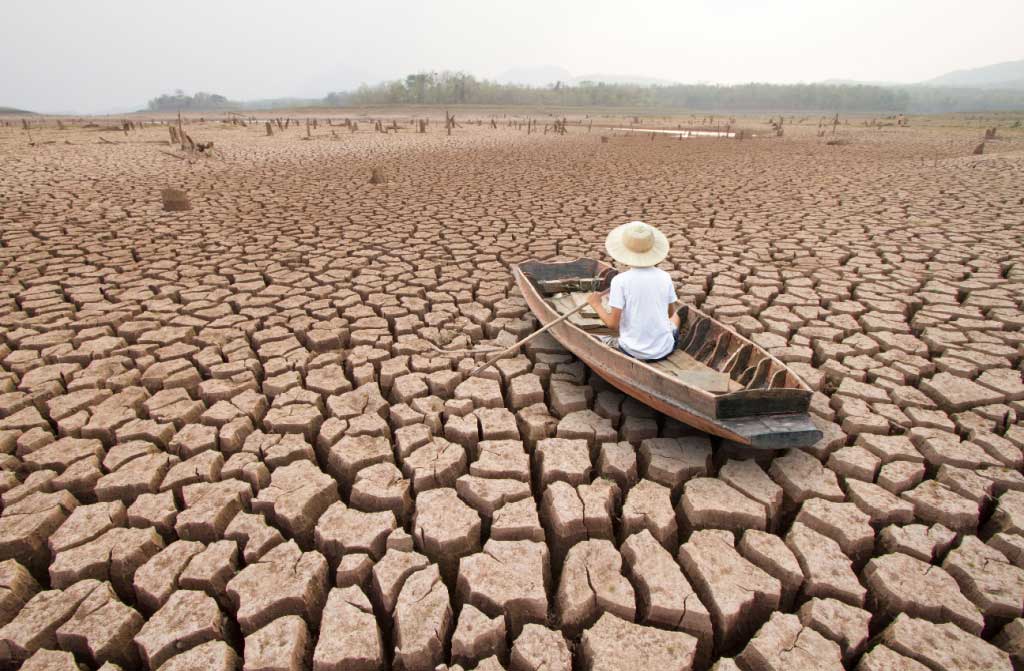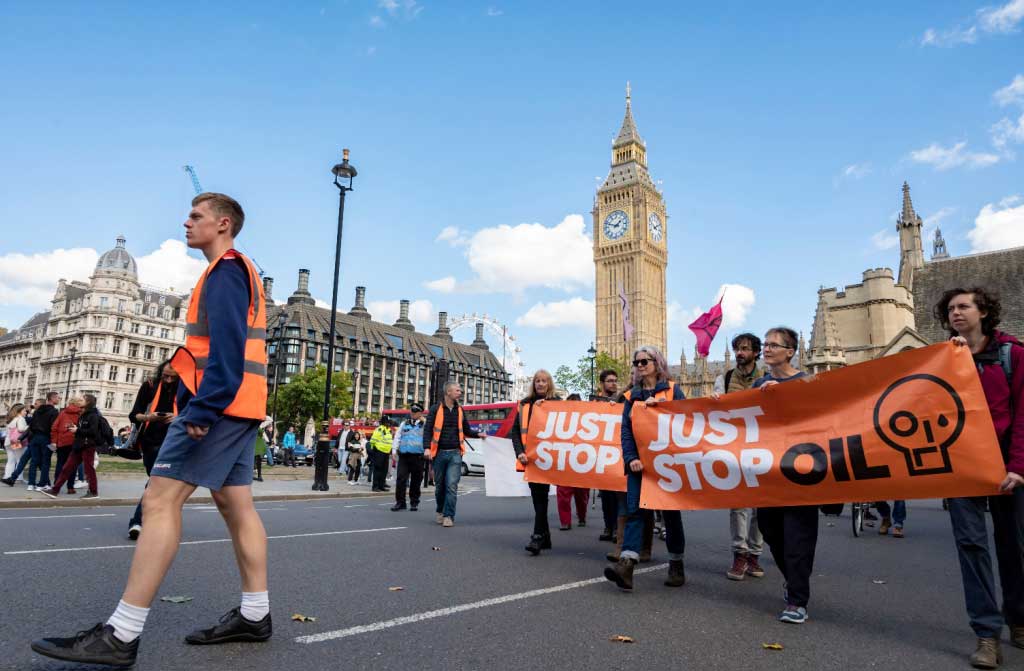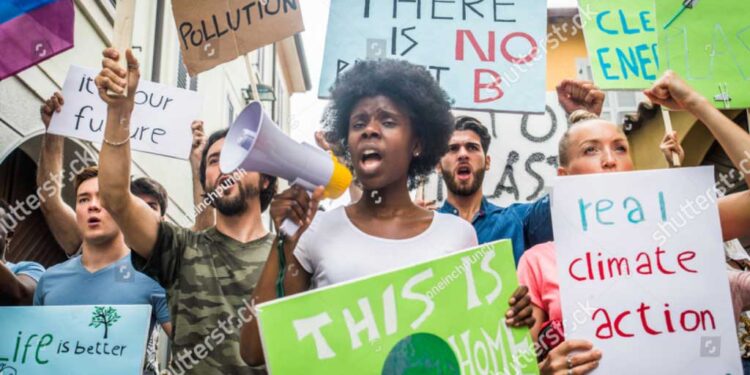Let’s be honest. Climate change is one of the most pressing issues the world is facing today. The effects of global warming are already being felt across the planet, from rising sea levels to more frequent and severe weather events. In order to address this issue effectively, it is crucial that we approach it with a clear and level-headed perspective. While radical action and a shock-provoking approach might seem effective at the moment, the damage it does in the long term is much more, well, counter-productive. Climate change needs more realists, not doomists and sensationalists. Realist voices are essential for informing, raising awareness, and implementing a proactive approach that leads to real solutions. It’s sad to witness how often acute problems don’t get the attention they need. This sometimes results from information not being communicated with the best choice of words or actions. In the case of climate change, communicating the problem in an effective manner is key for a sustainable future to be possible.
Causes and effects of climate change

While it might seem boring to most of us, the causes and effects of climate change are still unclear to many. But learning and re-learning what we know is a life-long process. Sometimes, we forget the simplest things in our everyday life. So how could we remember so much information about the world all the time? Sometimes we need to recap so the knowledge doesn’t fade away. So, here’s a quick revision before we get more into our subject.
Climate change is caused by human activities that release greenhouse gases into the atmosphere. Those actions are upholding global warming. Thus, the main contributors to climate change are activities involving fossil fuel burning. Generating power, production, and transportation. Those are among the industries with the biggest amounts of carbon emissions. Deforestation, food production, and consumerism are the leading causes of the negative impact. Buying incredible amounts of plastics in the form of packaging is also one of the considerable contributors. The question “Are we the blue planet or the plastic planet?” doesn’t seem to lose relevance…
The effects of climate change push people into poverty. Many struggle on a daily basis to avoid natural disasters. Some are suffering from food and water shortages on a daily basis. Heat is destroying the soils suitable for agriculture. Desertification is forcing millions of people to leave their homes day by day. Desertification and erosion are common challenges for communities all over the world. Wildfires are destroying forests and ecosystems at devastating rates. Heavy storms and hurricanes are starting to become more and more common.
The list could go on, and even reading it makes us sink into a state of anxiety. But the planet needs us to keep our minds clear and work on practical solutions that can bring change. In the meantime, there are lots of things we can do in our individual lives, like practicing sustainability at home.
Why sensationalists are doing damage?

Sensationalist approaches to climate change have proven to be harmful to the cause. Those rely on hyperbolic language and exaggerated claims and actions. This gives off the message, that the information could be misleading. But the truth is the opposite. Environmental threats are real, and we need real attitudes to find solutions.
Discrediting the scientific community
First of all, sensationalist claims can erode the public’s trust in the scientific community. This can lead to questioning the reality of climate change itself. When we are presented with sensationalist predictions that are not based on evidence, it can lead us to confusion. Exaggerated claims can lead to skepticism or, in some cases, even disbelief. Fortunately, technology is making us smarter –at least in some respects. Thanks to technology, there’s always a world of information at our disposal to help us tell apart good sources from bad ones.
Distracting by shocking
Sensationalist claims can distract from the practical, evidence-based solutions. And those are what’s needed to address climate change. By exaggerating the negative impacts, or taking unproportionate action, doomist claims and actions can overshadow the public reception of legitimate information. This can block the practical actions that can be taken to mitigate the issue. All attention-seeking doomist approaches have a tendency to slow down the actual progress.
Vindicating hopelessness

Sensationalist manifestations can lead to a sense of hopelessness and inaction. Rather than motivating individuals and governments to take the necessary steps to make a change, those can result in a state of freeze.
It is important to recognize the seriousness and urgency of the situation, no doubt. But it is equally important to avoid falling into a state of despair or hopelessness. Climate anxiety and climate change-related depression are growing problems of our times. And alarmist language is making them worse.
The truth is, there is much that can be done. We need more realists who are willing to take steps and inspire others to take action toward this goal. This would mean working together to reduce greenhouse gasses, first of all. Then, advocating for sustainable technologies, and embracing investing opportunities in green energy, can also lead to significant results. Adapting to the changes that are already happening is another important step.
Sensationalist events that did harm

These are some examples of sensationalism that were criticized for painting a picture that is not based on scientific truth. Those were bashed for causing distress with their alarmist approach.
The documentary entitled An inconvenient truth, written by Al Gore released in 2006, was a seminal work on climate change. But it was also criticized for its sensationalist approach. The film’s portrayal of the potential impacts of climate change received criticism for being alarmist. It’s claims have not always been based on sound scientific evidence.
Another great example is the Climate gate scandal. Also known as the “Climatic Research Unit email controversy”, the event took place in 2009. Thousands of emails and other documents were stolen from the Climate Research Unit at the University of East Anglia in the UK by a hacker.
Climate skeptics claimed the emails showed evidence of a conspiracy to manipulate climate data. But investigations found no evidence of scientific misconduct. The CRU rejected this, saying the emails had been taken out of context. The controversy was fueled by sensationalist media coverage. It had a lasting negative impact on public perception of climate science.
Recent radical events

On a more recent note, the UK-based Just Stop Oil and the Italian group Ultima Generazione –are known for their protests in famous museums. They got public attention by gluing themselves to invaluable artworks. They even poured soup on some of the world-famous artworks. Both groups are funded by the Climate Emergency Fund. The controversial LA-based organization is run by millionaires. Their aim is to draw attention to climate change. They fund disruptive activities carried out by radical groups. Just Stop Oil has been funded with $920,000 since 2020, and Ultima Generazione received $80,000. Just stop oil has repeatedly received criticism for their protesting methods. Those involved vandalism and blocking roads. Supporters of the group got arrested more than 2000 times since 2022.
These radical actions have caused some scandals worldwide. Needless to say, they got quite a bit of attention. Still, it remains a question whether this is the best way the message to fight environmental disregard should be communicated. And whether this is helping political action in any way. In what amount these actions are reaching positive results is questionable.
Sensationalist and catastrophist claims are counterproductive in building political will to address climate change. Those claims and actions can lead to a polarized political environment. And that makes it more difficult to build consensus and take steps on the path towards a sustainable future.
To conclude,
While climate change is a complex and urgent issue, it is important to approach the topic with a balanced and realistic perspective. That means, building on a solid base of evidence and practical solutions. We know that the modern lifestyle is bad for the environment. At the same time, it is also important to recognize the limits of what can be done. It’s important to avoid unrealistic and alarmist language or predictions at all times. A balanced and evidence-based approach to climate change can help to work towards more practical solutions. Climate change is a complex issue. But by approaching it with a realistic and pragmatic mindset, we can take steps towards a more sustainable future. This will change things for us, and let’s hope it does the same for future generations, too.











